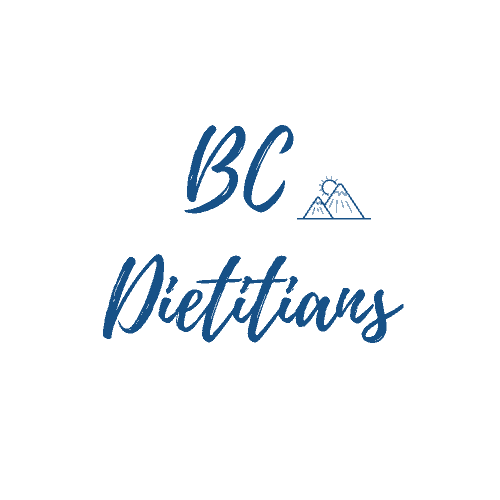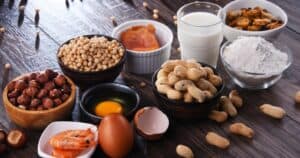Confused about what to eat before and after your training or workout?
You’re not alone when it comes to confusion in the world of sports nutrition. A quick search in a fraction of a second on the internet comes up with over 3.5 million “hits” regarding nutrition advice for leaning out, building muscles or improving performance.
Since we are all unique when it comes to exercise routine, personal goals, injuries or physical limitations, one diet for performance fueling does not fit all.
Read on as we dive into some of the current hot topics in sports nutrition, including questions around carb-loading, protein needs, fluid needs, electrolytes, intermittent fasting and more!
With decades of experience working with high performance and recreational athletes, Kelly Anne Erdman – a Kelowna based sports dietitian, shares her expertise as she provides valuable insights to the top 10 sport nutrition questions.

KellyAnne Erdman
What Should I Eat Before Exercise?
Talk about a loaded question.
What to eat before exercise depends on MANY factors:
- How much time do you have between eating and exercise?
- How intense will your workout be?
- How long is the anticipated training session going to be?
- What kind of workout will you be doing?
- And, what are your body composition goals?
If you plan to do a low intensity, cardio session first thing in the morning then you could probably just get up and go, which means exercising in a fasted state, or grab a quick, easy-to-digest carb choice: banana, toast or granola bar.
The greater the intensity of the workout, the farther in advance you will need to eat.
Most will need at least 1-2 hours between eating a meal before hard workouts. If you plan to weight train then ensure to include some carbs and protein in your pre-workout nutrition like oatmeal, Greek yogurt and berries or a protein shake containing fruit.
And for those going for a long endurance session (cycling, hiking, etc) you would probably feel the best when your pre-training nutrition includes a balance of carbs with protein and healthy fat, such as: bagel with peanut butter and banana or grapes.
Should I Carb-Load Before a Marathon or other endurance activities?
“Carb-Loading” or “Priming” is to load up your energy stores (i.e., muscle glycogen) before an endurance activity.
Priming is only necessary when your activity within the next 24 hours will be longer than a 2 to 3 hour duration such as a marathon!
The idea is to rest up while you load up with a little more carbs in your diet than your usual routine to build up that glycogen storage. Slightly larger portions of pasta, rice, sweet potato or quinoa in at least your dinner meal, along with a high carb bedtime snack, will usually do the trick when it comes to priming the day before your endurance session.
How Much Protein Do I Need Every Day? And How much Protein Do I Need After Exercise?
A very hot topic indeed! As Dietitians we calculate protein needs based on grams for every kg of body weight. Inactive, sedentary individuals only need 0.8 grams of protein for every kg they weigh.
While “athletes” can consume between 1.2 to 2.0 grams per kg per day. Some experts agree that 1.6 grams of protein for every kg is a healthy amount of daily protein to support all your athletic protein needs (to build muscle, antibodies, hormones, red blood cells, etc.).
If you weigh 150 lbs (68 kg) you would need 109 grams of protein dispersed throughout the day. More is not better.
The maximum amount of protein that we can use is estimated around 2.2-2.3 grams for every kg body weight (that works out to a gram per pound, 150 grams of protein for 150 lbs body weight). Excess protein is simply oxidized as an energy source as we don’t retain surplus protein.
As for protein after exercise, aim for 0.3 to 0.4 grams for every kg body weight within the immediate recovery nutrition. At 150lbs that works out to 20-27 grams of recovery protein.
Learn more about protein powders here.
How Do I Know if I'm Drinking Too Much Water During Exercise?
“Hyperhydration” is the result of over-drinking water during exercise and that can lead to muscle cramping from diluting the level of sodium in the blood.
On average we sweat about 1.2 litres per hour of exertion, but there is a huge range for sweat rates amongst athletes. The limiting factor for processing fluids during exercise is our kidneys.
Even though someone might sweat well over the average 1.2 L/hr rate, it is best to limit drinking during exercise to about 1 Litre per hour. But then after your activity emphasize your rehydration to replenish your fluids losses.
What can I Eat During Training?
Most would benefit from consuming some food energy, mainly as carbohydrate, during exercise when the activity is longer than 90 minutes.
If you exercise regularly you probably have enough stored energy to work hard for at least 1.5 hours, hence the advice to eat for endurance. For longer training sessions start to eat within the first 20 minutes during your activity to help sustain your effort.
The recommended range of carbs consumed for every hour of exercise is between 30 to 90 grams, but 60 grams of carbs for every hour of activity is a safe starting point. That translates to sipping on sport drink and eating a banana or sports bar each hour of endurance exercise.
Which Electrolytes are Most Important During Training ?
In most cases, the main mineral we lose in sweat is sodium.
However, sweat composition is highly variable and replenishing these electrolytes (i.e., minerals) during exercise is only a concern when you are doing long endurance sessions that exceed two hours, especially in the heat and/or humidity.
Probably best to experiment a little and try to find the optimal mix of sodium and potassium consumed during training to meet your personal needs. Electrolyte supplements, coconut water, orange juice, bananas, dried fruits, salty snacks and sports drinks are a variety of options that can cater to your mineral (i.e., sodium, potassium) needs.
What to Eat and What to Avoid After Exercise?
Technically, the last thing we need in recovery nutrition after exercise would be a source of fat, such as nuts. Fats slow down digestion and we want the recovery nutrition to be digested and absorbed ASAP.
Instead, aim for a balance between some carbs and lean protein to effectively restore energy and repair muscle, etc.
As a Performance Dietitian, I often talk about the five “R’s” to exercise recovery nutrition:
- Restore muscle glycogen energy (carbohydrates)
- Repair muscle (protein)
- Replenish electrolytes (sodium, potassium, etc.)
- Rehydrate (fluids) and get to all of this REAL FAST
The quick timing is important since enzymes are most ready to facilitate recovery right after exercise.
How Much Carbohydrate Do I Need Each Day? What If I want to Lower My Body Fat?
Carbohydrate needs are also calculated based on body weight with a wide range from 3 to 10 grams of carbohydrate for every kg body weight each day.
Your individual carb requirements are relative to your workout intensity, duration, body composition goals, your fitness and even your history in sport. Ideally, aim to consume enough carbs to support fueling your workouts, since carbohydrates are the main fuel (and can be the limiting factor) for your exercise energy needs.
One estimate for carbohydrate requirements would be to consume around 5 grams for every kg body weight if you tend to exercise more than an hour a day (~ 7 hours per week).
Limit your carb intake to 2-3 grams for every kg body weight if trying to lean out, but be careful that you eat enough carbohydrates to support your exercise sessions!
Under-fueling with a low carb diet can jeopardize your energy, recovery, ability to build muscle, immunity, menstruation and many other health consequences can develop from low carb intakes!
How do I Know When I Might Need an Iron Supplement?
Low iron is a common concern with athletes, especially if you’re a menstruating female that runs a lot!
Some sources of iron losses include sweat, from our digestive system (the jarring movements during exercise) and from footstrike (when your foot hits the ground with jumping and running causing the breakdown of red blood cells).
Young athletes who are growing and developing will need more iron to support myoglobin for muscle development and hemoglobin in their blood.
Vegans and vegetarians are also at greater risk for low iron due to the challenges with poor absorption of non-animal based iron sources (e.g., tofu, legumes, dried fruits, enriched grains, etc.).
Chronic feelings of low energy and premature exercise fatigue can reflect low iron stores and/or low hemoglobin, but the definitive diagnosis for low iron would be a blood assessment. Iron deficiency needs to be corrected with appropriate dosage of Iron supplements, your dietitian can help you figure out what might work best.
Consider requesting your doctor to have your iron stores (serum ferritin) and iron saturation measured as well as a routine CBC (complete blood count) if you get a medical requisition for blood work.
My Workouts or Practices End Late at Night, Should I Be Fasting?
Exercise recovery nutrition is considered the most important nutrition of the day for athletes, especially if you are planning to workout within the next 24 hours.
Although recovery nutrition is critical to get the most out of your workouts, a late night meal may make it difficult to sleep.
In most cases a light meal with eggs, toast and fruit or a smoothie and bowl of cereal may suffice for meeting your nutritional needs after being active in the evening. Alternatively, if you skip your late night recovery nutrition you may lack physical energy for your next workout as well as compromise your “training response” to build muscle.
These ten “hot topics” in sport nutrition are common questions that sport dietitians hear from their clients and reflect the complexity of planning your personal nutrition to maximize your workouts and training. Sports Dietitians are trained to help customize your nutrition to meet your unique health and performance goals.








Add a comment